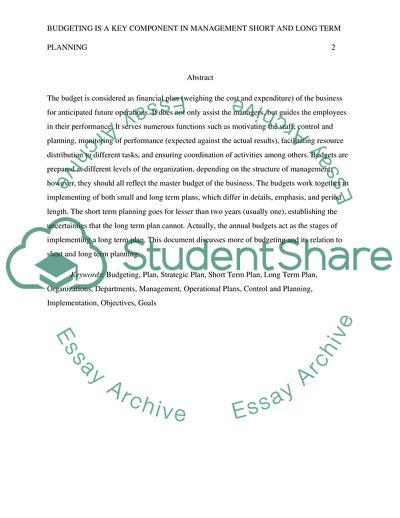Budgeting is a key component in management short and long term Essay - 3. https://studentshare.org/finance-accounting/1793252-budgeting-is-a-key-component-in-management-short-and-long-term-planning
Budgeting Is a Key Component in Management Short and Long Term Essay - 3. https://studentshare.org/finance-accounting/1793252-budgeting-is-a-key-component-in-management-short-and-long-term-planning.


